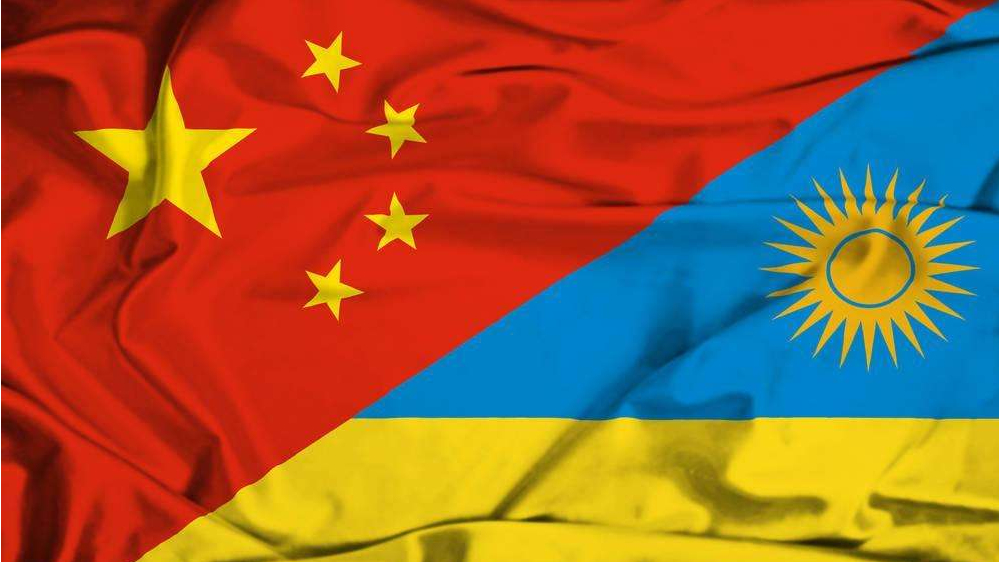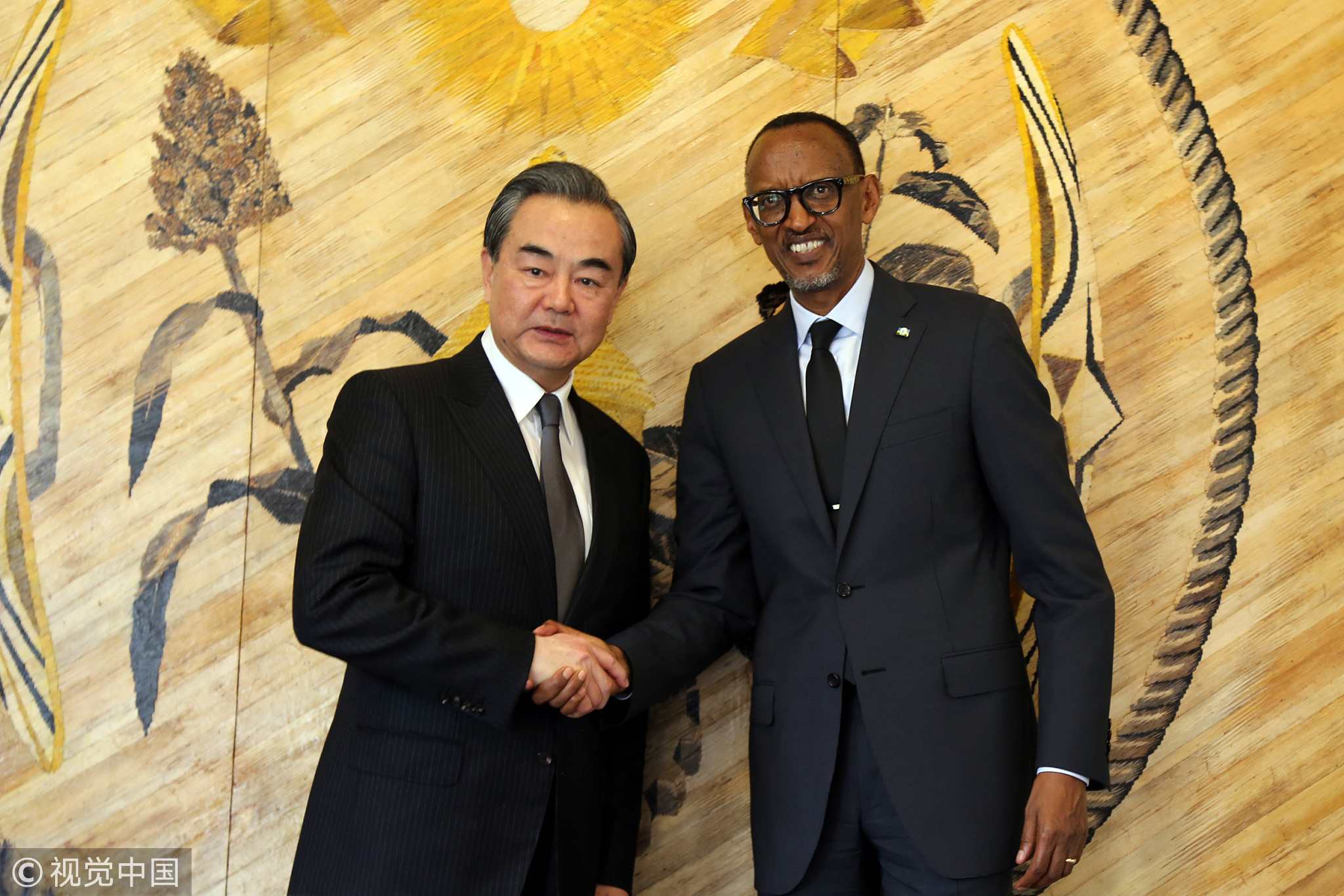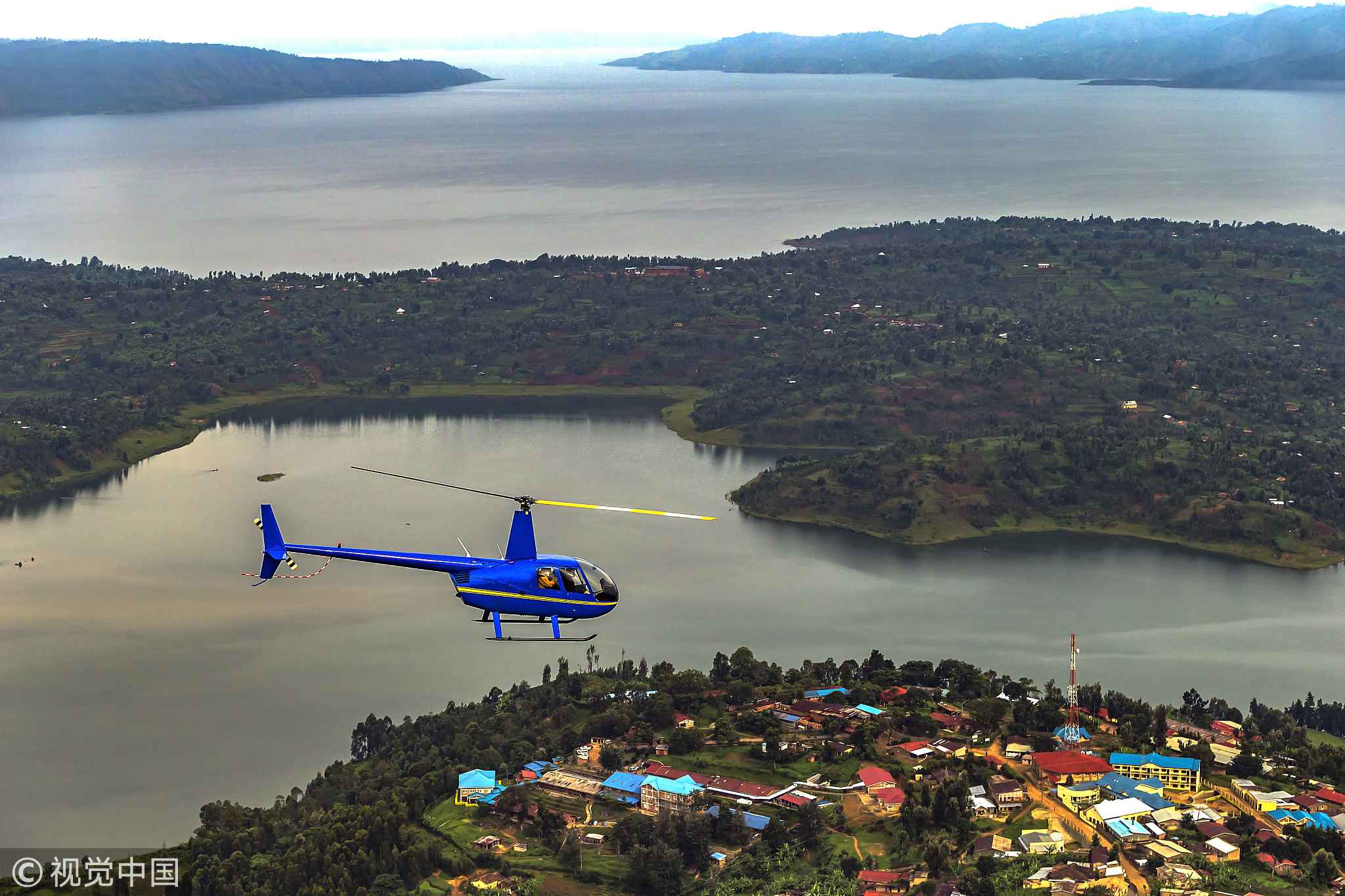
Opinions
10:13, 23-Jul-2018
Opinion: Rwanda and China: Partners in Development
Updated
09:17, 26-Jul-2018
Luyolo Sijake

Editor's note: Luyolo Sijake works for the PKU Africa Think Tank. The article reflects the author’s opinion, and not necessarily the views of CGTN.
As Chinese President Xi Jinping goes on a tour of four African nations, his visit to Rwanda is of particular significance not only to the bilateral relationship between China and Rwanda, but also to the broader Africa-China relationship.
Of particular importance is how the partnership between China and Rwanda is positioned to promote transformative economic development for the East/Central African nation and continued growth for China.

Wang Yi, the Minister of Foreign Affairs of the People's Republic of China, meets Paul Kagame, the President of Rwanda, in Kigali on January 13, 2018./VCG Photo
Wang Yi, the Minister of Foreign Affairs of the People's Republic of China, meets Paul Kagame, the President of Rwanda, in Kigali on January 13, 2018./VCG Photo
President Xi’s visit not only represents a commitment to the longevity of its relationship with Rwanda -- as Rwanda’s President Paul Kagame now holds the position of Chair of the African Union -- it also illustrates China’s commitment to cooperation with the African continent.
Since the establishment of bilateral ties in 1971, the various dimensions of the relationship between China and Rwanda -- political, economic and cultural -- have strengthened significantly.
The political relationship, underpinned by a strong sense of fraternal solidarity between the two countries, has seen increasingly regular bilateral visits by government representatives from both sides since 1972, including a visit to Beijing by Rwanda’s Minister of Foreign Affairs and Cooperation and State Secretary of Finance and Economic Planning in 2000 to attend the very first Ministerial Summit of the Forum on China-Africa Cooperation (FOCAC). 2018 represents another frontier in the political relationship as the visit by President Xi is the first any Chinese head of state has ever made to Rwanda.

A helicopter flying over islands in Rwanda./VCG Photo
A helicopter flying over islands in Rwanda./VCG Photo
The economic relationship between China and Rwanda has been the cornerstone of bilateral relations, with trade and investment growing steadily over time, particularly in the last decade. China has also been a significant provider of aid to Rwanda in the areas of education and health, among others.
Teaming up to promote economic development has been an overarching theme of the relationship between the two countries. Rwanda, as with other developing countries, aspires to rid itself of the need for aid and to be able to secure a high quality of living for its people from the fruits of its own economic productivity.
Fundamental to achieving this is the expansion of its industrial sector, which would bring about an increase in the nation’s economic prosperity and its capacity to satisfy core developmental imperatives. A central question for Rwandans will be how the visit by President Xi will contribute to the realization of their country’s developmental objectives.
This visit by President Xi sees the signing of a raft of bilateral agreements. These will invariably pave the way for the economic cooperation between the two countries to grow, which is sure to see economic benefits amplified and play an important role in continued industrial expansion in Rwanda, where much of the workforce is engaged in subsistence farming.
Of particular importance here is the fact that China’s investments in Rwanda have tended toward infrastructure and manufacturing, and not only the cash crops and primary commodities that have traditionally dominated the Rwandan economy. This holds the potential to contribute to the systemic reorientation of the Rwandan economy toward greater industrialization, a process the Kagame administration has already set in motion.
Rwanda has equally been an important part of China’s growing activity in the international arena over the course of the relationship, acting as an important partner to China in the East and Central African region. More recently, Rwanda has worked to position itself as an investor-friendly environment, providing many Chinese enterprises with an accommodating “landing ground” in the region. This is exemplified by Startimes, a China-based pay TV provider, which chose Rwanda as the first foreign market to enter. From this foundation, it has expanded to over 30 countries on the continent, in some cases outperforming its competitors that have had a presence in the continental market for much longer.
The visit to Rwanda can be said to be a dual-purpose visit, with both bilateral issues and issues concerning China-Africa relations up for discussion. As the current AU Chair, Rwanda represents the 55 AU member states on continental affairs. Africa-China relations have been developing rapidly, something we will be reminded of at the FOCAC Summit set to be held in Beijing in September this year.
Core to China’s own developmental endeavors is the Belt and Road Initiative (BRI), with Africa being an important component of this global scale initiative. African developmental objectives, on the other hand, as embodied by Agenda 2063, the vision for the continent over the next 50 years as adopted by the AU, center upon achieving the industrialization of the continent. These two broader projects, BRI and Agenda 2063, overlap in numerous ways and have great potential to complement one another going forward. China and Africa’s commitment to see this take place is certain to be concretized during President Xi’s visit to Kigali.

SITEMAP
Copyright © 2018 CGTN. Beijing ICP prepared NO.16065310-3
Copyright © 2018 CGTN. Beijing ICP prepared NO.16065310-3